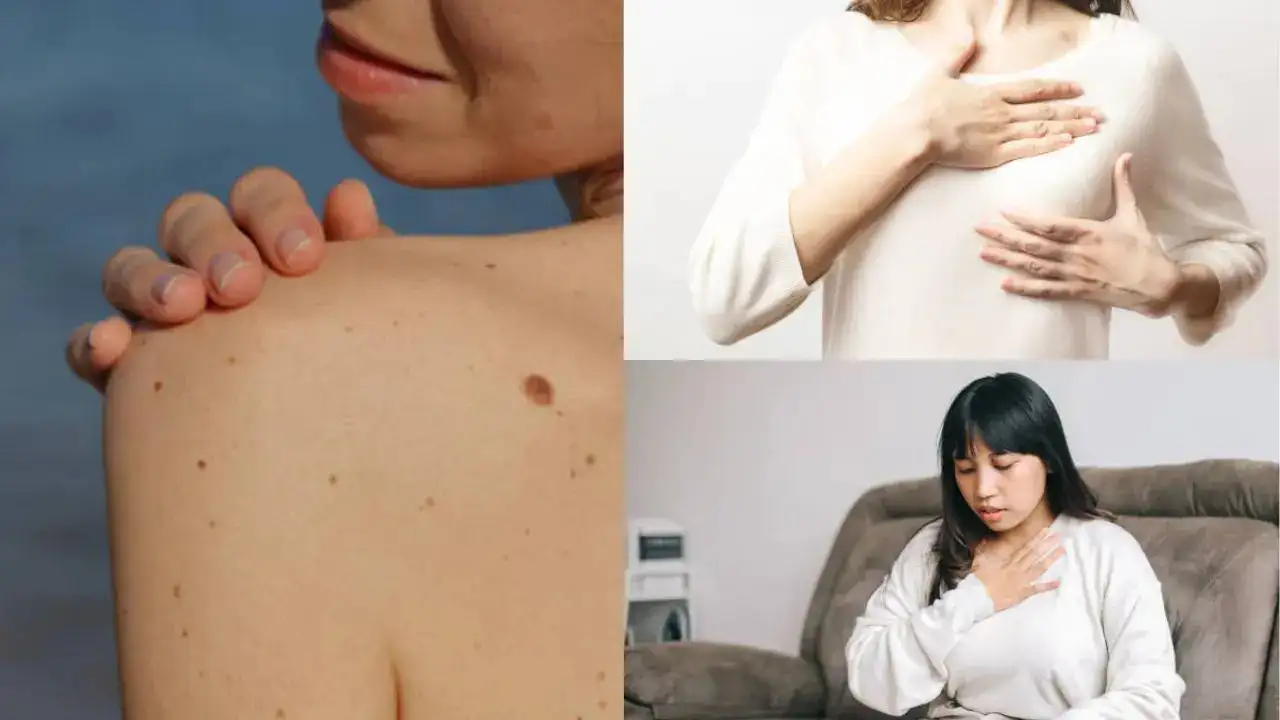Ashima Sharda Mahindra • 23 Apr 2025
Doctor Reveals 10 Subtle Signs of Cancer You Cannot Afford To Ignore

Signs like any new lumps or moles anywhere in your body that start to itch, crust, flake, or bleed can be potential signs of cancer
A top UK-based cancer doctor has urged the public to be wary of subtle changes in their body whi could be signs of cancer. National NHS cancer director Professor Peter Johnson said it is important to immediately go to a doctor for a thorough check-up if you find anything amiss.
“It is so important to know what is normal for you, although we all find a host of other things to think about rather than checking for any changes in our bodies. That's why I want to encourage everyone to make it a part of your routine—finding a way that works for you might just save your life,” he told the Daily Mail.
According to experts, signs like any new lumps or moles anywhere in your body that start to itch, crust, flake, or bleed can be potential signs of cancer. Apart from that, there are many other signs that you need to take seriously.
Ten subtle signs that NHS wants you to take seriously include:
- An unexplained lump anywhere on the body
- A mole that changes colour or shape, or starts itching, crusting, flaking, or bleeding
- Blood in stool
- Blood in urine - even just once
- Unexpected or unexplained bleeding, e.g., blood when you cough, bleeding after sex, bleeding after menopause or between periods
- Breathlessness
- Frequent infection
- Unexplained night sweats
- Unexplained weight loss
- Unexpected or unexplained bruising
When should you see a doctor regarding your symptoms?
Doctors say a few symptoms are sometimes associated with cancer, like pain, heartburn, or a lump or mole, but are usually not caused by cancer at all. These symptoms and others are common and may be triggered by benign conditions. And so, the key is to be aware of changes in your body that just do not seem right to you.
Experts believe it is extremely important to trust your instincts, especially if you are an older adult, and consider seeking medical advice. When you experience common symptoms, you should seek medical advice if:
- Your symptoms persist for more than a few weeks or get progressively worse
- You have unusual lumps or bumps that don’t go away
- Remember it’s better to err on the side of caution. So, if you have any doubts, see your doctor, especially if you have a family history or other increased risks of developing cancer.
Get Latest News Live on Times Now along with Breaking News and Top Headlines from Health and around the world.